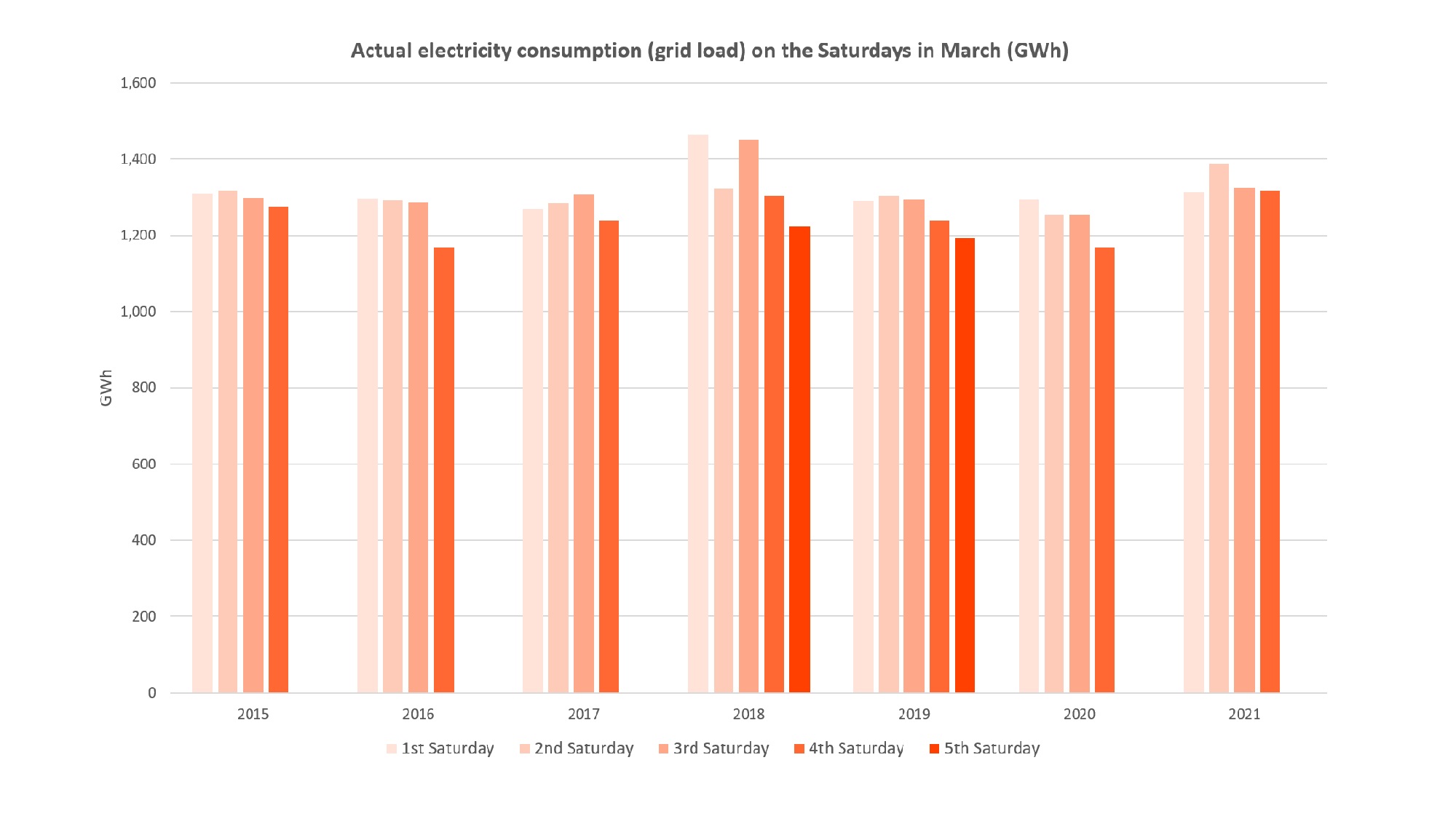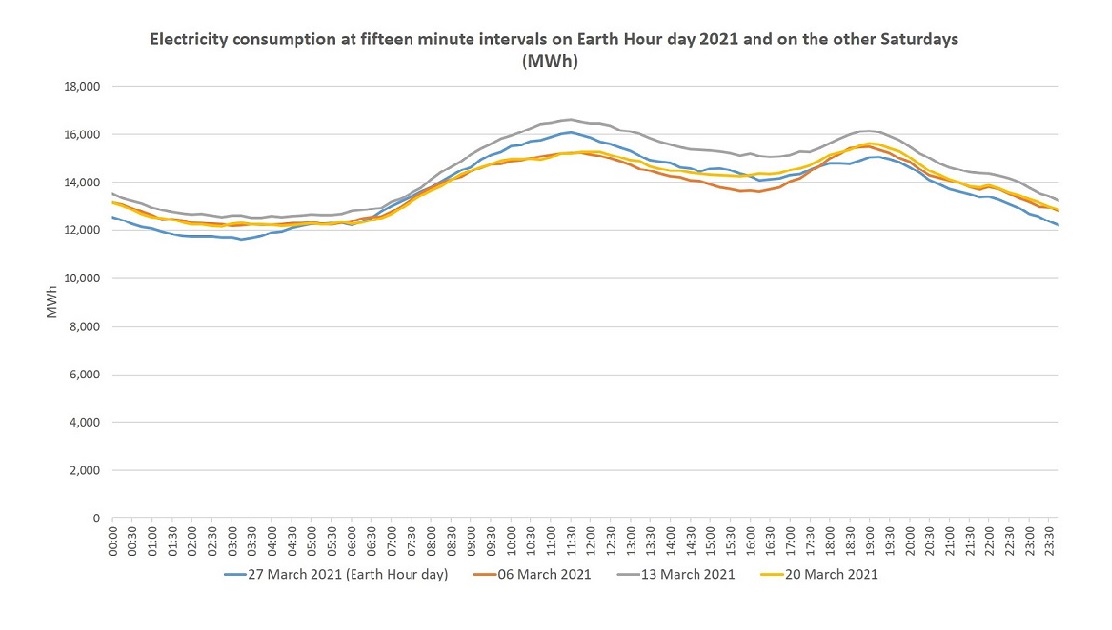Hint: This website is not optimized for your browser version.
"Earth Hour" and switch to summer time
The WWF is once again calling on people to switch off their lights for one hour during "Earth Hour" this weekend. Besides the effects of the clocks going forward, this could also be reflected in the SMARD data.
From 8.30pm this Saturday the World Wide Fund for Nature (WWF) is organising "Earth Hour", encouraging people worldwide to turn off their lights for one hour. This is intended to raise awareness for climate and species protection, in particular. Earth Hour takes place on the last Saturday in March every year.
Previous years' data do not show significantly lower electricity consumption during this one hour. However, it can be seen that electricity consumption is usually lower on Earth Hour day than on the other Saturdays in March. In 2016 and 2020 the difference was most evident, when electricity consumption on Earth Hour day fell by 117 GWh and 85 GWh respectively compared to the previous Saturday.
At the same time, in March days start getting lighter and longer, which is why people tend to turn on the lights later in the evening. This also has an effect on electricity consumption.
By looking at the SMARD data you will be able to notice possible irregularities in electricity consumption between 8.30 and 9.30pm on this year's Earth hour day.
In the night from Saturday to Sunday, the clocks will also go forward one hour, which will be reflected in the SMARD time series. Due to daylight saving time the hour from 2 to 3am will be skipped. When changing back to standard time on the last Sunday in October, we will then gain one hour. This affects all data categories regardless of their original resolution (quarter hour, hour).

